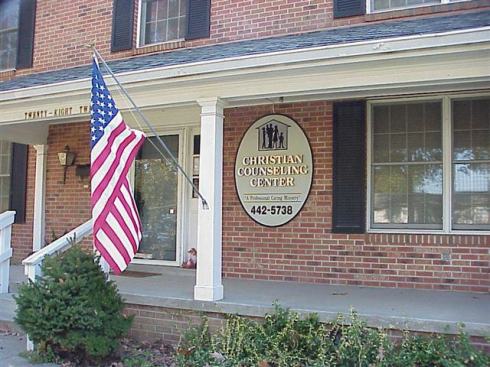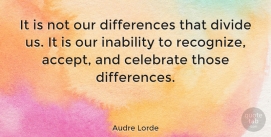You are currently browsing the category archive for the ‘Uncategorized’ category.
 We have been honored to provide mental and behavioral health services under the Direction of Roger D Thompson for 34 years. It has been our mission to strengthen families. Effective 2/28/2020, CCC of Western Kentucky dba Christian Counseling Center, will be closing.
We have been honored to provide mental and behavioral health services under the Direction of Roger D Thompson for 34 years. It has been our mission to strengthen families. Effective 2/28/2020, CCC of Western Kentucky dba Christian Counseling Center, will be closing.
We will still be taking appointments at the current location until mid-February at phone number 270-442-5738.
Roger Thompson, MS, LMFT will begin seeing clients in April at Emerald Therapy Center, 3227 Coleman Rd, Paducah, KY 42001. You may call 270-534-5128 to schedule an appointment beginning April 2, 2020.
Kim Rowe, LPCA, M. Ed. Will see clients at a new location of 2500 Hold Rd., Paducah, KY 42001. You may call 270-241-0571 to schedule an appointment beginning in March 2020.
If you would like to transfer or receive a copy of your records, you should contact our office prior to January 31, 2020. We comply with HIPPA guidelines in the protection and transfer of your records and there are certain criteria that must be met. We will retain a copy of CCC records for 7 years in compliance with KY state regulations. However, when the office closes, the records will be stored in a secure location and will not be available to pick up after this date.
We are called by Our Savior to carry each other’s burdens. We are very thankful to all of those who have placed their trust in us since 1986. From the CCC family to yours,
May you have a blessed year.
Trauma is a life event or sudden change in our life that has the potential to overwhelm us. The death of a spouse, job loss, sexual abuse, abandonment, devastation due to storms or fire, are a few sudden changes in our lives that create an overwhelming presence too difficult to cope with alone.
Trauma may impact us with a myriad of symptoms. You may have trouble sleeping, have trouble concentrating, feel detached or in a daze. When you or someone you love begins to deal with the impact of a heartbreaking event, there are some things to help.
- Understand that it is normal to feel the way you do at this time.
- Crying is normal and healthy.
- Telling the story of the event relieves the stress of the trauma.
- Maintain close bonds with caring people.
- Begin each day with 5 minutes of deep, relaxed breathing.
- It is OK to ask for help.
- Be Patient.
When you are helping others:
- Never ask “why” they feel the way they do.
- Do not attempt to solve a problem, just listen.
- Avoid needless questioning for details of your own curiosity, let them tell their story. They need to be heard
- Avoid telling your own war stories.
- Avoid statements that minimize their feelings.
- Avoid statements of “you should”.
The good news about recovering from trauma is that it is possible and can lead to personal growth that otherwise might not have occurred.

Photo by burak kostak on Pexels.com
No matter where you live, you have relationships with people who have different cultures. Culture refers to a group or community who share a common experience that shapes the way they understand the world. This includes people of different race, national origin, gender, class, or religion. But it can also include a group we join or become a part of. You might move to a new country, have a change in your economic status or become disabled.
When you are working with people and building relationships with them, it is important to have an understanding of their culture. Their views, their values, their loyalties, their hopes, and their fears are all influenced by their culture. People may see the world differently, but there are many things that we each have in common. We are all human beings. We all love deeply, want to learn, have hopes and dreams. And we have all experienced pain and fear.

We need a wide range of ideas and wisdom to solve problems. Bringing a diverse group of people into the center of an issue can provide fresh perspectives and shed new light on tough problems. Racial and ethnic conflicts drain communities of financial resources, human resources, and distract the community from resolving the key issues they have in common.
We shouldn’t pretend that the differences don’t matter, but we must remember that everyone has an important viewpoint and a role to play when it comes to culture. Everyone can be uplifted by taking the time to understand culture and create diverse groups who can work together. Only then can we form an alliance against discrimination and be effective in reaching common goals.
Paducah, KY, Monday, May 07, 2018
Christian Counseling Center is A Professional Caring Ministry Since 1986
Roger Thompson, Executive Director, is pleased to announce that Kimberly Rowe, MEd, LPCA will be joining our staff. She will be accepting all types of referrals for mental and behavioral problems.
Kim obtained a Bachelor of Business Administration in Management from the University of Texas at Arlington, TX. She then obtained her Masters of Education with a focus on Mental Health Counseling from the Lindsey Wilson School of Professional Counseling College at Columbia KY. Since 2015 she has worked with clients at Recovery Works to provide group and individual counseling regarding Anxiety, Anger Management and substance dependence.
Kim is a member of the American Counseling Association (ACA) and Kentucky Counseling Association (KCA). She is a Volunteer Tutor and Women’s Support Group Facilitator at the Ninth Street Church of Christ in Paducah. She also teaches life skills to 3rd through 5th graders from local elementary schools. She is an avid gardener and enjoys spending time with her husband and two children.

Kim says, “Beginning again is an opportunity not always given. I am especially excited to work with individuals and families that have made the decision to begin again. I look forward to assisting you in acquiring and utilizing the tools in navigating life’s challenges and moving forward.”
Appointments can be made by calling the Christian Counseling Center at 270-442-5738. You may also visit us on the web at www.ccchope.com.
Summertime is a great time for families to spend more time together.
Close families don’t happen by accident, they happen on purpose. If you want a close family, you have to work at it. Here are a few suggestions to help you get started.
- Let each family member pick a day to be “their” day. Circle those days on the calendar and put the family member’s name on the date. On that day they are to have their favorite meal and choose an activity which they want the entire family to participate in.
- Turn off all electrical items that can interrupt (TV, stereo, phone, etc.) and have the entire family play a game together.

- Have each family member design and make a card for other members of the family in which thoughts and feelings of appreciation are expressed.
- Begin a contest to see who can deliver the most hugs in a certain period of time.
- Spend the evening looking at family photographs together.
- Invite someone you know that is recently widowed to your house to share a family meal.
- Send a thank you card in the mail to a family member thanking them for something they have done for you or the family.
- Even if it requires getting up early, sit down and have breakfast together.
- Let each family member tell their most unforgettable family memory.
- Declare a family clean-up day. Work together inside or outside the house instead of assigning separate choirs.
These ideas are just a few of the suggestions in “30 Days to a Closer Family” by David Johnson, M.S.W. and Scott Bonk, M.S.

Research shows that supportive relationships are good for our mental and physical health. However, dealing with difficult people and maintaining ongoing negative relationships is actually detrimental to our health.
The following are tips for dealing with difficult people who are in your life, for better or for worse:
- In dealing with difficult people, don’t try to change the other person; you will only get into a power struggle, cause defensiveness, invite criticism, or otherwise make things worse. It also makes you a more difficult person to deal with.
- Change your response to the other person; this is all you have the power to change. For example, don’t feel you need to accept abusive behavior. You can use assertive communication to draw boundaries when the other person chooses to treat you in an unacceptable way.
- Remember that most relationship difficulties are due to a dynamic between two people rather than one person being unilaterally “bad.” Try not to place blame on yourself or the other person for the negative interactions. It may just be a case of your two personalities fitting poorly.
- Try to look for the positive aspects of others, especially when dealing with family, and focus on them. The other person will feel more appreciated, and you will likely enjoy your time together more.
- Know when it’s time to distance yourself, and do so. If the other person can’t be around you without antagonizing you, minimizing contact may be key. If they’re continually abusive, it’s best to cut ties and let them know why. Explain what needs to happen if there ever is to be a relationship, and let it go. (If the offending party is a boss or co-worker, you may consider switching jobs.)
 Tips:
Tips:
Remember that you don’t have to be close with everyone; just being polite goes a long way toward getting along and appropriately dealing with difficult people. Be sure to cultivate other more positive relationships in your life to offset the negativity of dealing with difficult people.
From Elizabeth Scott, M.S.,Your Guide to Stress Management About.com Health’s Disease and Condition
Following exposure to a trauma most people experience stress reactions. When trauma survivors take direct action to cope with their stress reactions, they put themselves in a position of power. Certain actions can help to reduce your distressing symptoms and make things better. Plus, these actions can result in changes that last into the future.
Active Coping. Active coping with the trauma makes you begin to feel less helpless. Active coping means accepting the impact of trauma on your life and taking direct action to improve things. Active coping occurs even when there is no crisis. Active coping is a way of responding to everyday life. It is a habit that must be made stronger.
Positive coping actions.
- Learn more about trauma and Post Traumatic Stress Disorder. It is useful to learn more about common reactions and what is normal. When you learn more you realize that you are not alone or weak.
- Talk to others for support. It is important not to isolate yourself.
- Distract yourself with positive activities. Pleasant activities can improve your mood and distract you from your memories.
- Talk to your doctor or counselor. Part of taking care of yourself means using the helping resources around you. If efforts at coping don’t seem to help, you may become fearful or depressed.
Practice relaxation methods. Try some different ways to relax, such as:
- Muscle relaxation exercises.
- Breathing exercises.
- Meditation.
- Swimming, stretching, yoga.
- Prayer.
- Listening to quite music.
- Spending time in nature.
Know the recovery process. Understand that recovering from the trauma is a process and takes time. Knowing this will help you feel more in control.
- Having an ongoing response to the trauma is normal.
- Recovery is an ongoing, daily process. It happens little by little. It is not a matter of being cured all of a sudden.
- Healing doesn’t mean forgetting traumatic events. It doesn’t mean you will have no pain or bad feelings when thinking about them.
- Healing may mean fewer symptoms and symptoms that bother you less.
- Healing means more confidence that you will be able to cope with your memories and symptoms. You will be better able to manage your feelings.

We are here to help if you would like to learn more about coping skills. Whether there is a recent trauma or stress in everyday life, active coping is a habit that can be made stronger.
 Is your child unfocused or over active?
Is your child unfocused or over active?
Is your child struggling academically?
As an adult, are you constantly disorganized?
Are you constantly struggling to stay on task?
Early diagnosis and treatment can improve self-esteem, build confidence and make one more productive in the workplace.
The staff at Christian Counseling Center is trained in the diagnostic criteria and treatment strategies to assist children and adults with ADD/ADHD.
Call 270.442.5738 for more information and to schedule an appointment.

Focus on your future today!
A first-born or only child may be more likely to become a doctor or lawyer. Younger siblings more often turn to the arts or the outdoors. In part, you can credit parenting.
- Parents may over-protect oldests or onlies. So they tend to follow more brain-based interests. When later children show up, parents can be more relaxed and hands-off.
- Firstborns tend to try to be “perfect” more often than later-borns. But kids without siblings, who are often treated like little adults, seem to have even more of this trait.
- 21 out of 23 of the first American astronauts were first born. All seven of the original Mercury astronauts were firstborns. Other famous firstborn trail-blazers: Winston Churchill, Bill Gates, JFK, and Oprah Winfrey.
- It’s lonely at the top — or at least, at the beginning! A 2007 survey of corporate leaders found that 43% of CEOs were firstborns, 33% were middle children, and 23% were youngest children.

- Even when parents try to be even-steven, it rarely works out that way. Kids born first get as much as 3,000 more hours of quality time with parents than younger siblings do at the same age. Parents spend about equal time with two or more kids. But there’s less total free time than there was when a firstborn passed through a given age.
- It’s clear why birth order interests us so much. Most of us weren’t born as the only child in a family.
- Older moms say they feel closest to their “babies” no matter what the family size or spacing between kids. In the same study, mothers said firstborns were the ones they’d turn to when facing personal problems or a crisis.


